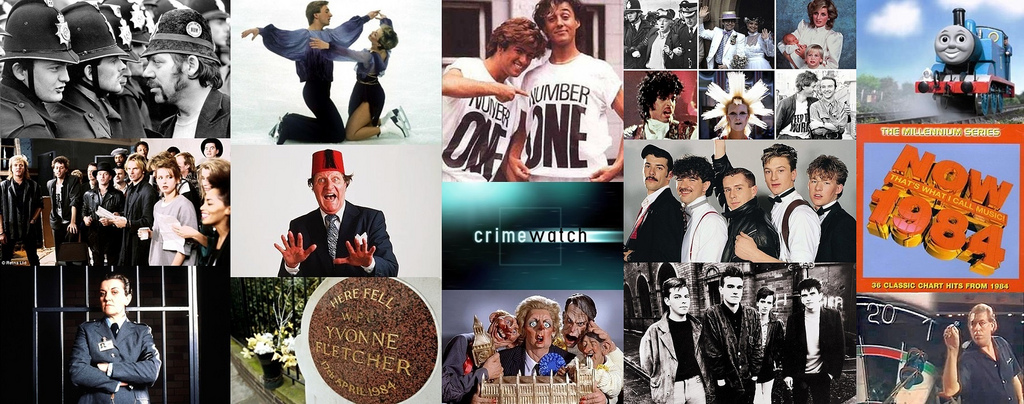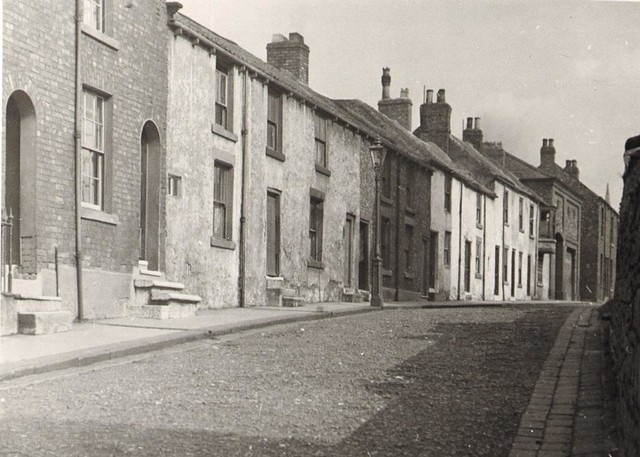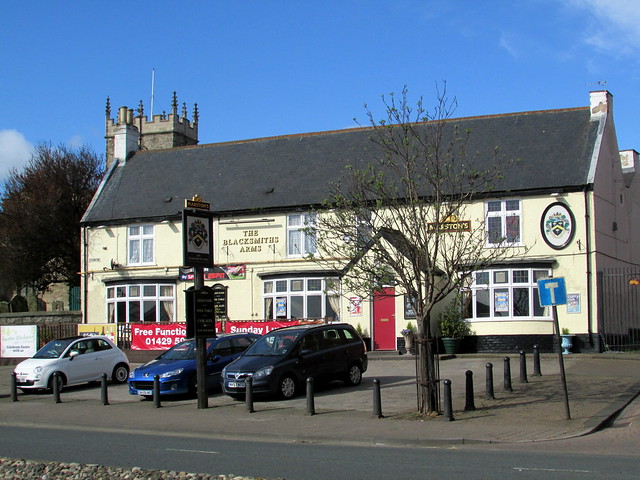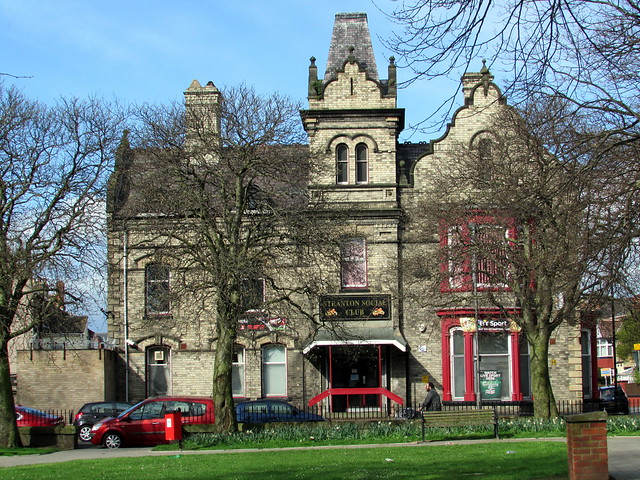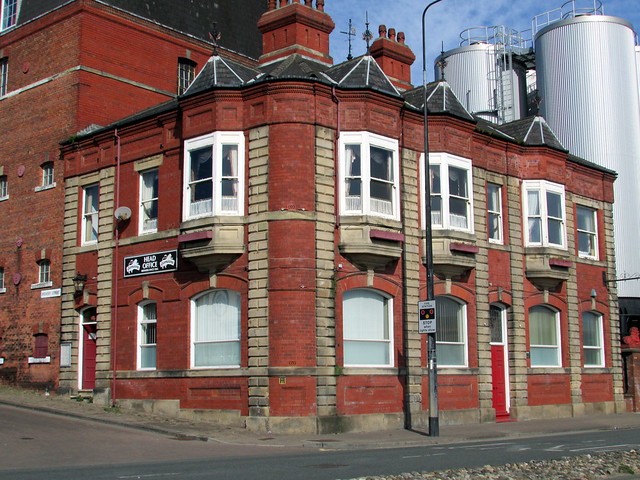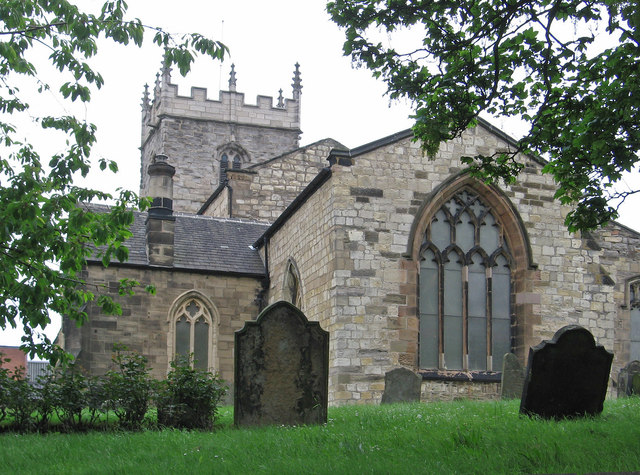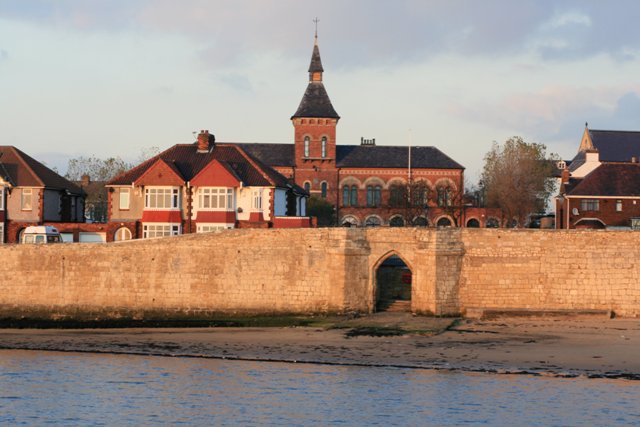That Was the Year That Was - 1984

-
Description
1984 The Aids Virus is identified it is not the worldwide problem it is today. Following on from the PC Apple releases the Macintosh computer. Following the Widespread Famine in Ethiopia many of the top British and Irish USSR pop musicians join together under the Name Band Aid and record the song "Do They Know It's Christmas". Following the boycott by the US of the Moscow Olympics the soviet block boycotts the Los Angeles Olympic games. Recession continues to be a problem in the US and 70 US Banks fail in just one year. In 1984? the wife of the future king was expecting a second child, England fans sang “No surrender to the IRA”; and Bob Geldof and bunch of famous musicians made a charity record called Do They Know It’s Christmas?, for Africa, which went to No 1 at Christmas. On Television There were only four channels if you missed something, that was it – you missed it. But it didn’t matter because it was probably just Prisoner Cell Block H, or Corrie, or Dallas. Or The Jewel in the Crown if you were posh. With Frankie Goes to Hollywood dominating the charts, bolero jackets and leg warmers all the rage, and Nelson Mandela still in prison. Jayne and Christopher spun and swirled to fame with their interpretation of Ravel's 'Bolero' at the 1984 Winter Olympics, which made them the highest-scoring ice dancers of all time. Six people died when Britain was battered by hurricane force winds in January. Youth gangs ran riot in Wolverhampton, looting from shops. Peace protesters were evicted from the Greenham Common Women's Peace Camp. Bucks Fizz, the highly successful pop group, are involved in a road accident near Newcastle upon Tyne when their tour bus crashes in icy road conditions after a concert. Bobby Gee, Cheryl Baker and Jay Aston escape with relatively minor injuries, but Mike Nolan is in a serious condition. On 15 April 1984, Tommy Cooper collapsed and soon after died from a heart attack in front of millions of television viewers, midway through his act on the London Weekend Television variety show Live From Her Majesty's, transmitted live from Her Majesty's Theatre. His stage persona required that his act intentionally go wrong for comic purposes, leading to some initial uncertainty about whether this collapse was real. "Relax" reaches number one in the UK singles chart, despite the BBC ban; it will spend a total of 42 weeks in the Top 40. The Miners Strike The 1984/5 miners strike was one of the longest strikes in UK history. It started in Yorkshire in early March 1984 in protest at intended pit closures by Margaret Thatcher’s government. The president of the National Union of Mineworkers at the time, Arthur Scargill called a national strike and because this was later declared illegal, striking mineworkers were deprived of any income. Margaret Thatcher branded the striking miners “the enemy within” setting the tone for police and strikers facing each other across picket lines outside pits and other industrial sites requiring coal. Women played a large part in the strike and formed support groups as soon as the national strike began on 9 March 1984. Tens of thousands of Britain's miners have stopped work in what looks like becoming a long battle against job losses. More than half the country's 187,000 mineworkers are now on strike. Miners in Yorkshire and Kent were the first to down tools this morning - by tonight they had been joined by colleagues in Scotland and South Wales. The trouble began over an announcement by Chairman of the Coal Board Ian MacGregor six days ago that 20 uneconomic pits would have to close, putting 20,000 miners out of work. Miners at Cortonwood colliery in Yorkshire - the first earmarked for closure - walked out at midnight on 5 March in protest at the plans. National Union of Mineworkers president Arthur Scargill is calling on members across the country to join the action. He is relying on flying pickets to drum up support. The beginning of the end for British coal The 1984 miners' strike was the most bitter industrial dispute in British history. But ten years earlier the UK's coal industry appeared to be on the way up. A cross-party agreement - the "Plan for Coal" - appeared to secure the future of mining in Britain, two years after the February 1972 miners' strike, which had crippled the country's power supplies. Over 200 million tons was to be produced by 2000, which meant major expansion and investment for the industry. 1 December 1984: Taxi driver killed by striking miners Two striking miners were last night charged with the murder of a taxi driver who was taking a miner to work at Merthyr Vale colliery in Mid-Glamorgan. The two men were Mr Reginald Dean Hancock, aged 21, of Rhymney Bridge, Rhymney, Mid-Glamorgan, and Mr Russell Shankland, 20, of Manest Street, Rhymney. Both men are single. Merthyr police said last night they would appear this morning before a specially convened magistrates’ court. A third person was last night still helping police with their inquiries. Mr David Wilkie, aged 35, was killed when a concrete block and a four foot long concrete post were dropped on his car from a bridge 20 feet above the A465 Heads of the Valleys road near Merthyr Tydfil. The taxi went out of control and crashed into an embankment. Both missiles hit the car, which was in a police convoy, and the concrete block, measuring 18 inches by 9 inches, smashed the windscreen and pinned Mr Wilkie to his seat. He sustained multiple injuries and was dead on arrival at hospital. The working miner in the back of the taxi, Mr David Williams, aged 35, was unhurt. The Chief Constable of South Wales, Mr David East, later told a press conference at Merthyr police station: ‘This is not industrial action. This is not picketing. This is murder. Whoever threw those things down must have known the likely consequences.’ He recalled that in September the assistant chief constable, Mr Viv Brook, had warned that someone would be killed if pickets continued throwing pieces of concrete from motorway bridges. Striking miners had then been attempting to stop convoys of lorries taking coal to Llanwern steelworks. ‘The style of attack today is similar,’ Mr East said, ‘but with any inquiry you must keep an open mind.’ Twenty-eight policemen have been injured in clashes involving hundreds of police and pickets at the colliery, where two men have been reporting for work for a fortnight. 1984: Libyan embassy shots kill policewoman A police officer has been killed and ten people injured after shots were fired from the Libyan People's Bureau in central London. WPC Yvonne Fletcher had been helping control a small demonstration outside the embassy when automatic gunfire came from outside. She received a fatal stomach wound and some of the demonstrators were also severely injured. WPC Fletcher, 25, died soon afterwards at Westminster Hospital. Her fiancé, another police officer who was also at the demonstration, was at her side. After the shooting people were cleared from surrounding offices in St James' Square. Some had witnessed events from their workplace. Film maker Ray Barker said people were stunned by what had happened. "Several of my colleagues burst into tears. It was unbelievable that sort of thing could happen at such an insignificant demonstration," he said. Journalist Brian Cartmell was in St James' Square just feet away from Yvonne Fletcher when she was hit. "She crumpled to the floor clutching her lower stomach and groin and rolled on to her right-hand side with a look of total surprise on her pretty face," Mr Cartmell said. The Libyan building is now surrounded by armed police officers including specialist marksmen. However, Home Secretary Leon Brittan has said the police are prepared to wait and deal with the situation in a peaceful way. Police officers are in touch with those inside the Libyan People's Bureau via a special telephone link. The Libyans, led by Colonel Gaddafi, are blaming Britain's police and security forces for "attacking" their embassy. Britain restored diplomatic relations with Libya in 1999 after the Libyan Government admitted it bore "general responsibility" for WPC Fletcher's death. It also paid a six-figure sum in compensation to her family. 1984 Timeline January – General Motors ends production of the Vauxhall Chevette after nine years. 1 January – Brunei regains its independence from the United Kingdom. It became a British protectorate in 1888. 3 January – The FTSE 100 Index starts. 6 January – The Society of Motor Manufacturers and Traders announces that a record of nearly 1.8million cars were sold in Britain last year. The best selling car was the Ford Escort with more than 174,000 sales. 9 January – Sarah Tisdall, a 23-year-old Foreign Office clerk, is charged under the Official Secrets Act. 13 January – Six people die when Britain is battered by hurricane force winds. 15 January – Left-wing rebel Tony Benn wins the Labour Party's nomination for the Chesterfield by-election, eight months after losing his seat as Member of Parliament (MP) for Bristol in the General Election. 25 January – The government prohibits GCHQ staff from belonging to any trade union. 1 February – Japanese car maker Nissan signs an agreement with the British government to build a car factory in Britain. This landmark deal means that "foreign" cars will be built in Britain for the first time, with the factory set to open during 1986. 7 February –19 February – Great Britain and Northern Ireland compete at the Winter Olympics in Sarajevo, Yugoslavia, and win one gold medal. 12 February – Austin Rover announces that the Triumph marque will be discontinued this summer after 63 years, as the Triumph Acclaim's successor will be sold as a Rover. 14 February – Torvill and Dean win a gold medal for ice skating at the Winter Olympics. 20 February – The Manchester alternative rock band The Smiths, fronted by Morrissey, release their first album, The Smiths. 1 March – Labour MP Tony Benn is returned to parliament after winning the Chesterfield by-election, having lost his previous seat at the general election last year. 2 March – Just five months after becoming Labour Party leader, Neil Kinnock's ambition of becoming Prime Minister at the next election (due to be held by June 1988) are given a boost when Labour come top of a MORI poll with 41% of the vote (compared to the 38% attained by the Conservatives). Just over six months ago, the Conservatives had a 16-point lead over Labour in the opinion polls. However, Kinnock is still faced with the task of overhauling a triple-digit Conservative majority. 12 March – Miners' strike begins and pits the National Union of Mineworkers against Margaret Thatcher's Conservative government intent on free market reform of the nationalised industries, which includes plans for the closure of most of Britain's remaining coal pits. 14 March – Sinn Féin's Gerry Adams and three others are seriously injured in a gun attack by the Ulster Volunteer Force (UVF). 21 March – European Economic Community summit breaks down over disagreement over Britain's budget rebate with Margaret Thatcher threatening to veto any expansion of spending plans. 23 March – Hilda Murrell, 78-year-old rose grower and anti-nuclear campaigner, is found dead near her home in Shropshire, five days after being reported missing. West Mercia Police launch a murder investigation. 27 March – Starlight Express opens at Apollo Victoria Theatre in London. 28 March – A greenfield site at Washington, near Sunderland, is confirmed as the location for the new Nissan car factory. 2 April – Youth gangs run riot in Wolverhampton, looting from shops. 4 April – Peace protesters evicted from the Greenham Common Women's Peace Camp. 9 April – More than 100 pickets are arrested in violent clashes at the Creswell colliery in Derbyshire and the Babbington colliery in Nottinghamshire. It is estimated that 46 out of 176 British coal mines are currently active as miners fight government plans to close 20 coal mines across Britain. 12 April – Arthur Scargill, the leader of the National Union of Mineworkers, rules out a national ballot of miners on whether to continue their strike, which has already lasted five weeks. 15 April – The comedian Tommy Cooper, 63, collapses and dies on stage from a heart attack during a live televised show, Live from Her Majesty's. 17 April – WPC Yvonne Fletcher is shot and killed by a secluded gunman during a siege outside the Libyan Embassy in London in the event known as the 1984 Libyan Embassy Siege. 11 other people are also shot but survive. 22 April – In the wake of Yvonne Fletcher's death, Britain severs diplomatic relations with Libya and serves warning on its seven remaining Libyan diplomats to return to their homeland. 25 April – Austin Rover launches its new Montego four-door saloon, which replaces the outdated Morris Ital and competes head-to-head with the Ford Sierra and Vauxhall Cavalier. The demise of the Ital coincides with the demise of the 72-year-old Morris marque, as the restructuring of Austin Rover will result in the discontinuation of several less popular marques as well as a less extensive model range. 27 April – 30 Libyan diplomats leave Britain. 2 May – The Liverpool International Garden Festival opens in Liverpool. 8 May – The Thames Barrier, designed to protect London from floods, is opened by The Queen. 19 May – Everton win the FA Cup, their first major trophy for 14 years, with a 2-0 win over Watford in the final at Wembley Stadium. The goals are scored by Andy Gray and Graham Sharp. Everton's last FA Cup triumph came in 1966, and they have now won the trophy four times. 21 May – Release of The Smiths' single Heaven Knows I'm Miserable Now. 29 May – Fighting at Orgreave colliery between police and striking miners leaves 64 injured. 30 May - The Queen officially opens a new terminal at Birmingham International Airport. The terminal has been in use since the start of last month, replacing the original terminal that opened in 1939. Liverpool win the European Cup for the fourth time with a penalty shoot-out victory over AS Roma of Italy after a 1-1 draw in the final at Olympic Stadium in Rome. Liverpool, who have also won the Football League First Division and Football League Cup this season, are the first English club to win three major trophies in the same season. Arthur Scargill is arrested and charged with obstruction at Orgreave. June – British unemployment is at a record high of around 3,260,000 - though a higher percentage of the nation's workforce were unemployed during the Great Depression some 50 years ago. 7 June – 120 people are arrested when fighting breaks out outside the Houses of Parliament during a mass lobby by striking miners. 14 June – The European Parliament Election is held. The Tories lead the way with 45 MEPs, with Labour in second place with 32. The SDP–Liberal Alliance gains 18.5% of the vote but fails to elect a single MEP. 15 June – A miner picketing a Yorkshire power station is killed by a lorry. 20 June – The biggest exam shake-up in the education system in over 10 years is announced with O-level and CSE exams to be replaced by a new exam, the GCSE. The first GCSE courses will begin in September 1986 and will be completed in the summer of 1988. 22 June – The inaugural flight of the first Virgin Atlantic plane takes place. 29 June – Control of London Transport is removed from the Greater London Council and transferred to London Regional Transport (reporting to the Secretary of State for Transport) under terms of the London Regional Transport Act. 4 July – The government announces the abolition of dog licences. 6 July - David Jenkins consecrated as Bishop of Durham, despite strong objections from conservative Christians. Murder of Isabel Schwarz, a social worker, in South London. 7 July – The 10th G7 summit held in London. 9 July – A bolt of lightning strikes York Minster and causes extensive fire damage which is expected to cost millions of pounds to repair. 12 July – Robert Maxwell buys the Daily Mirror for £113.4 million. 18 July – The magazine Tit-Bits closes after 104 years. 19 July - A magnitude 5.4 earthquake with an epicentre in the Llŷn Peninsula, North Wales is felt throughout the United Kingdom. Neil Kinnock's hopes of becoming Prime Minister are given a boost by the latest MORI poll which puts Labour three points ahead of the Conservatives on 40%. 23 July – Austin Rover announces its second new car launch of the year — the Rover 200, a four-door saloon which replaces the Triumph Acclaim and is the combine's second product from its venture with Japanese car maker Honda. As a result, the Triumph marque is the second to be discontinued by Austin Rover this year. 26 July – Trade Union Act prohibits unions from striking without a ballot. 27 July – British actor James Mason dies in Switzerland aged 75. 28 July–12 August – Great Britain and Northern Ireland compete at the Olympics in Los Angeles, California, and win 5 gold, 11 silver and 21 bronze medals. 2 August – A Surrey business man wins a case in the European Court of Human Rights over illegal phone tapping by the police. 11 August – Barefoot South African runner Zola Budd, controversially granted British citizenship earlier in the year, collides with Mary Decker in the 3000 meters final at the Olympics, neither finishing as medallists. 16 August – John DeLorean, the man behind the collapsed DeLorean carmaker, is cleared on drug trafficking charges in Los Angeles. 24 August – Vauxhall unveils the Mk2 Astra, which will go on sale in October. 4 September – The Thomas the Tank Engine and Friends television series is first broadcast on ITV. 6 September – A MORI poll shows that the Conservatives now have a slim lead over Labour for the first time this year. 7 September – An outbreak of food poisoning in two Yorkshire hospitals has so far claimed 22 lives in the space of two weeks. 10 September – Geneticist Alec Jeffreys discovers DNA fingerprinting. 14 September – The Princess of Wales gives birth to her second son. 16 September – The two-day-old son of The Prince and Princess of Wales is named as Henry Charles Albert David. 24 September – Four pupils and their teacher die and a further six pupils are injured when a roll of steel from a lorry crushes their minibus near Stuart Bathurst RC High School in Wednesbury, West Midlands. 26 September – The United Kingdom and the People's Republic of China sign the initial agreement to return Hong Kong to China in 1997. 28 September – The High Court rules that the miner's strike is unlawful. 1 October – David Jenkins, Bishop of Durham, launches an attack on Margaret Thatcher's social policies. The Durham area has been particularly hard hit by factory and mine closures since her election as Prime Minister five years ago. 3 October – Plans to expand the Urban Enterprise Zone in Dudley, West Midlands, are approved; developers Don and Roy Richardson get the go-ahead to build a retail park and shopping mall on the main part of the site. The first tenants will move to the site next year and the development is expected in the next 18 months, with scope for further service sector developments in the future. 5 October – Police in Essex make the largest cannabis seizure in British criminal history when a multi-million pound stash of the drug is found on a schooner moored on the River Crouch near North Fambridge village. 10 October – The High Court fines the NUM £200,000 and Arthur Scargill £1,000 for contempt of court. 12 October – The Provisional Irish Republican Army attempts to assassinate the Conservative cabinet in the Brighton hotel bombing. Prime Minister Margaret Thatcher escapes injury, but Norman Tebbit is trapped among the rubble and his wife Margaret is seriously injured. Five people, including MP Anthony Berry, are killed. 13 October – Darts player John Lowe achieves the first televised nine dart finish. 16 October - There is good news for state-owned car maker Austin Rover. On the day that a facelifted version of the top selling Austin Metro, now available as a five-door as well as a three-door, is launched, it is announced that sales for September have increased by 39% over the same period last year. The pre-facelift Metro was Britain's best selling car last month, while the mid-range Maestro (launched 19 months ago) was the second best seller ahead of its key rival the Ford Escort, and the six-month-old Austin Montego was the fifth best seller ahead of the Ford Sierra. The Bill, a police TV drama, airs for the first time on ITV. It debuted last year as a pilot show Wooden Top. When the last episode is shown in 2010 it will be the longest-running police procedural in British television history. 18 October – Support for the Conservative government is reported to be improving after several months of dismal poll showings, with the latest MORI poll putting them nine points ahead of Labour on 44%. 23 October – BBC News newsreader Michael Buerk gives powerful commentary of the famine in Ethiopia which has already claimed thousands of lives and reportedly has the potential claim the lives of many as 7 million more people. Numerous British charities including Oxfam and Save the Children begin collection work to aid the famine victims, who are mostly encamped near the town of Korem. 5 November – 800 miners end their strike and return to work. 12 November – The English one pound note is withdrawn after 150 years in circulation. 15 November – The General Synod of the Church of England support the ordination of women as deacons, but not as full priests. 19 November – The number of working miners increases to around 62,000 when nearly 3,000 striking miners return to work. 20 November – British Telecom shares go on sale in the biggest share issue ever. Two million people (5% of the adult population) buy shares, almost doubling the number of share owners in Britain. 23 November – The Oxford Circus fire traps around 1,000 passengers on the London Underground but no-one is killed. 25 November – 36 of Britain and Ireland's top pop musicians gather in a Notting Hill studio to form Band Aid and record the song "Do They Know It's Christmas" in order to raise money for famine relief in Ethiopia. 28 November – The British Telecom share offer closes. 30 November - Tension in the miners' strike increases when two South Wales miners are charged with the murder of taxi driver David Wilkie, 35, who died when a concrete block was dropped on his car from a road bridge. The passenger in his car, who escaped with minor injuries, was a miner who had defied the strike and continued going to work. The British and French governments announce their intention to seek private promoters for the construction of the Channel Tunnel in order to build and operate it without public funding. The tunnel, for which proposals were first made as long ago as 1802, is expected to be open in the early 1990s. 3 December - British Telecom is privatised. The Band Aid charity single is released. 10 December - Richard Stone wins the Nobel Prize in Economics "for having made fundamental contributions to the development of systems of national accounts and hence greatly improved the basis for empirical economic analysis". César Milstein wins the Nobel Prize in Physiology or Medicine jointly with Niels Kaj Jerne and Georges J. F. Köhler "for theories concerning the specificity in development and control of the immune system and the discovery of the principle for production of monoclonal antibodies". 11 December – Band Aid's "Do They Know It's Christmas?" goes to the top of the UK Singles Chart. 12 December – Bucks Fizz, the highly successful pop group, are involved in a road accident near Newcastle upon Tyne when their tour bus crashes in icy road conditions after a concert. Bobby Gee, Cheryl Baker and Jay Aston escape with relatively minor injuries, but Mike Nolan is in a serious condition. 14 December – Arthur Scargill, president of the NUM, is fined £250 and ordered to pay £750 for his involvement in the rioting at Orgreave coking plant on 29 May this year. He decides against appealing his convictions, despite his lawyers advising him to do so. 16 December – Mikhail Gorbachev of the Soviet Union visits Britain. 18 December – The government announces the privatisation of the Trustee Savings Bank. 19 December - The People's Republic of China and the United Kingdom sign the Sino-British Joint Declaration which will see the whole of the British Overseas Territory of Hong Kong returning to Chinese control in 13 years. Ted Hughes' appointment as Poet Laureate in succession to Sir John Betjeman is announced, Philip Larkin having turned down the post. 21 December – The three-month-old son of The Prince and Princess of Wales is christened Henry Charles Albert David. (He is and always has been called "Harry"). 22 December – Band Aid's charity single is this year's Christmas number one. 31 December – Rick Allen, drummer of Def Leppard, loses his left arm in a car accident on the A57 road at Snake Pass. Chatham Dockyard in Medway is closed after being used a shipbuilding yard for over 400 years since the reign of Henry VIII. Vauxhall have a successful year in the motor industry. It reported that its market share has doubled since 1981, and the year ended on an even bigger high when its MK2 Astra range was elected European Car of the Year. Despite unemployment reaching a peak of nearly 3.3million this year, inflation is still low at 5%. Youth unemployment (covering the 16-24 age range) stands at a record 1,200,000 - more than a third of the total unemployment count. Television 4 January – Pat Phoenix leaves Coronation Street for the second and final time as Elsie Tanner goes to live with old flame Bill Gregory in Portugal, having been in the show since its inception in 1960. 16 January – "The Satellite Channel" is renamed "Sky Channel". 30 January – The BBC's Panorama documentary strand broadcasts "Maggie's Militant Tendency" which claims links between several Conservative MPs and far-right organisations both in Britain and Europe. Two of the MPs named, Neil Hamilton and Gerald Howarth subsequently sue the BBC for slander. In 1986 after the BBC withdraws from the case Hamilton is awarded £20,000 damages. 14 February – An estimated 24 million viewers watch Torvill and Dean win Gold at the 1984 Winter Olympics skating to Ravel's Boléro. 16 March – Peter Davison's last serial as the Fifth Doctor in Doctor Who, 'The Caves of Androzani', finished; Colin Baker became the Sixth Doctor in the same episode. 15 April – Comedian Tommy Cooper dies from a heart attack on live television at the age of 63 during Live From Her Majesty's. 7 June – BBC1 airs the first edition of Crimewatch. The first case to be featured on the show is the murder of Colette Aram, which had occurred the previous year. A man is finally charged with the murder in 2009, and sentenced to life imprisonment in January 2010 after pleading guilty. 23 June – ITV broadcasts the rock concert New Brighton Rock recorded at the event staged in the seaside resort of New Brighton, Merseyside over two days on 21 and 22 May. 28 July – The 1984 Summer Olympics begin in Los Angeles. 27 August – Technicians at Thames Television walk out on strike over the use of new cameras and editing equipment along with overtime payments for transmission staff. The strike lasts for two weeks but the station is off the air for just one day over the August Bank Holiday weekend. Management and administration staff take over their roles, broadcasting a skeleton service. 1 September – The Children's Channel launched on satellite television. 4 September – The Thomas the Tank Engine and Friends television series is first broadcast on ITV. 23 September – British single TV drama play Threads premiered on BBC2. 8 October – The Australian soap Prisoner: Cell Block H makes its British television debut when Yorkshire Television becomes the first ITV region to begin airing the programme in a late night slot. It is followed by most other ITV regions in 1987. 15 October – Channel 4's output increases by 25%. The weekday schedules now begin at 2.30pm instead of 5:00pm, while weekend airtime starts at 1:00pm rather than 2:00pm. 16 October – The Bill, a police TV drama, airs for the first time on ITV. It debuted last year as a pilot show Wooden Top. When the last episode is shown in 2010 it will be the longest-running police procedural in British television history. 23 October – BBC News newsreader Michael Buerk gives powerful commentary of the famine in Ethiopia which has already claimed thousands of lives and reportedly has the potential to kill as many as 7million people. Telstar TV, the UK's first pirate television station goes on air in Birmingham. The channel broadcasts for about eight weeks on the BBC2 transmitter in the Northfield and Rubery areas of the city, showing a mixture of films and pop videos after BBC2 closes at weekends. It goes unnoticed by the authorities for several weeks much to their embarrassment. BBC1 19 January – The Living Planet (1984) 29 January – Ever Decreasing Circles (1984–1989) 7 June – Crimewatch (1984–present) 1 September – Bob's Full House (1984–1990) 3 September – BBC News at Six (1984–present) BBC2 31 January – Alas Smith and Jones (1984–1998) 23 September – Threads (1984) ITV 7 January – Child's Play (1984–1988) 9 January – The Jewel in the Crown (1984) 13 February – Duty Free (1984–1986) 26 February – Spitting Image (1984–1996) 7 March – Fresh Fields (1984–1986) 24 March – The Price Is Right (1984–2007) 10 April – How Dare You (1984–1987) 24 April – The Adventures of Sherlock Holmes (1984–1988, 1991–1994) 28 April – Robin of Sherwood (1984–1986) 6 May – Surprise Surprise (1984–2001, 2012–present) 1 September - Bottle Boys (1984–1985) The Saturday Starship (1984–1985) 4 September – Thomas the Tank Engine and Friends (ITV 1984–2006, Five 2006–present) 8 October - Prisoner Cell Block H Yorkshire Region only (1984–1998) 13 October – Wide Awake Club (1984–1992) 16 October – The Bill (1984–2010) The Trap Door (1984–1986) We Love TV (1984–1986) James the Cat (ITV 1984–1992, Five 1998–2003) Music 9 January - first complete performance of Oliver Knussen's Where the Wild Things Are by Glyndebourne Touring Opera at the National Theatre, London. 11 January – BBC Radio 1 DJ Mike Read announces on air that he will not play the single "Relax" by Frankie Goes to Hollywood because of its suggestive lyrics. The BBC places a total ban on the record at about the same time. 21 January – "Relax" reaches number one in the UK singles chart, despite the BBC ban; it will spend a total of 42 weeks in the Top 40. 14 February – Elton John marries studio engineer Renate Blauel. 1 March – Sting plays his last concerts with The Police at the end of the Synchronicity tour; the band takes a "pause" after the tour and only play a few special events together after this, until 2007, when they would organize a reunion tour. 1 May – Mick Fleetwood files for bankruptcy in the United States. 5 August – Now 3 becomes the 300th album to reach number one on the UK Albums Chart. 23 October – A report on the Ethiopian famine by BBC journalist Michael Buerk is broadcast in the UK and receives an unprecedented public response. Among those watching is Bob Geldof, who is inspired to release a charity record to raise money to help with famine relief. 25 November – The Band Aid single "Do They Know It's Christmas?" is recorded at SARM Studios in Notting Hill, London, by a gathering of performers that includes Paul Young, Simon Le Bon, Bono, Phil Collins, Paul Weller, Sting, Boy George and Tony Hadley. 28 November – The Bring Me Sunshine charity concert at the London Palladium, in memory of Eric Morecambe, includes musical performances by Kenny Ball & His Jazzmen, Des O'Connor and Ernie Wise. 1 December – Frankie Goes to Hollywood become the first act to take their first three singles to the UK #1 position since Gerry & The Pacemakers in 1963, when "The Power of Love" tops the chart. 3 December – Bob Geldof and Band Aid release the single "Do They Know It's Christmas", which becomes the fastest-selling single of all time in the UK. 11 December - While on tour, Bucks Fizz's tour bus crashes. All members of the group are injured and member Mike Nolan suffers brain damage after falling into a coma. 13 December – George Harrison makes a rare public appearance, joining Deep Purple on stage in Sydney, Australia for their encore rendition of "Lucille". Number One Singles "Only You" - Flying Pickets "Pipes of Peace" - Paul McCartney "Relax" - Frankie Goes to Hollywood "99 Red Balloons" - Nena "Hello" - Lionel Richie "The Reflex" - Duran Duran "Wake Me Up Before You Go-Go" - Wham! "Two Tribes" - Frankie Goes to Hollywood "Careless Whisper" - George Michael "I Just Called to Say I Love You" - Stevie Wonder "Freedom" - Wham! "I Feel for You" - Chaka Khan "I Should Have Known Better" - Jim Diamond "The Power of Love" - Frankie Goes to Hollywood "Do They Know It's Christmas?" - Band Aid -
Owner
brizzle born and bred -
Source
Flickr (Flickr) -
License
What does this mean? Attribution-NonCommercial-ShareAlike License
-
Further information
Link: https://www.flickr.com/photos/20654194@N07/17380165503/
Resource type: Image
Added by: Peter Smith
Last modified: 7 years, 11 months ago
Viewed: 1521 times
Picture Taken: 2015-05-23T12:58:34 -
Co-Curate tags
